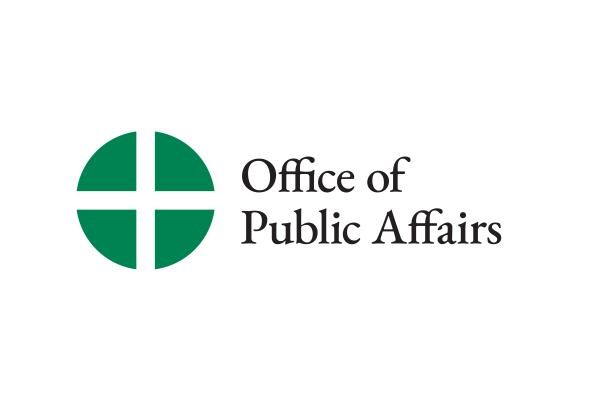Bishops, Policy Specialists, Other Catholic Leaders Convene Renewed Effort on Nuclear Disarmament at Stanford University
WASHINGTON—Nuclear weapons “present an existential threat to mankind,” said former U.S. Secretary of State George Shultz to a group of Catholic leaders on April 24. “We need to reduce the numbers of these weapons, identify and take the steps needed to keep them under better control, and ultimately e
April 28, 2014
WASHINGTON—Nuclear weapons “present an existential threat to mankind,” said former U.S. Secretary of State George Shultz to a group of Catholic leaders on April 24. “We need to reduce the numbers of these weapons, identify and take the steps needed to keep them under better control, and ultimately eliminate them.” Secretary Shultz and former Secretary of Defense William Perry hosted a Colloquium on Revitalizing Catholic Engagement on Nuclear Disarmament, April 24-25, at Stanford University.
This off-the-record event brought together 40 bishops, policy specialists, Catholic scholars, and young professionals and students to explore policy and moral challenges involved in moving toward a world without nuclear weapons.
“The bishops have made the moral case for ultimate nuclear disarmament; Shultz, Perry, Kissinger and Nunn have made the case for disarmament as a policy goal, a goal embraced by the U.S. and Russian governments,” said Bishop Richard E. Pates of Des Moines, Iowa, chairman of the U.S. Conference of Catholic Bishops’ (USCCB) Committee on International Justice and Peace. “My hope is that this colloquium will be the beginning of a process to invigorate and refine the voice of the U.S. Catholic community in the debate on nuclear nonproliferation and disarmament.”
Holy Cross Father John Jenkins, president of the University of Notre Dame and, with Bishop Pates, a co-convenor of the colloquium, emphasized the distinctive role of Catholic universities, which “should serve as networks of discussion and sources of knowledge – able to explore and address the practical, technical and ethical issues that arise on the way to a global ban.”
Other speakers included Secretary Perry, former Senator Sam Nunn, retired Ambassador James Goodby, Father Bryan Hehir (Harvard), Franciscan Father Kenneth Himes (Boston College), Jesuit Father Drew Christiansen, (Georgetown), Scott Sagan and Sidney Drell (Stanford), and Stephen Colecchi (USCCB).
The colloquium was the kick-off of a larger project intended to empower a new generation of Catholic bishops, scholars, professionals and students to address the ethical and policy challenges of reducing and eliminating nuclear weapons. It will convene symposia for ethicists and policy experts, publish articles in scholarly and popular journals and reach out to students and young professionals through a social media site that emphasizes the religious and ethical dimensions of nuclear disarmament.
The Hoover Institution and the Freeman Spogli Institute for International Studies at Stanford University hosted the colloquium. The project is sponsored by the University of Notre Dame’s Kroc Institute for International Peace Studies in collaboration with the USCCB’s Office of International Justice and Peace; Georgetown University’s Berkley Center for Religion, Peace, and World Affairs; and Boston College. The project is made possible with the support of the Nuclear Threat Initiative.
---
Keywords: George Shultz, Sam Nunn, Bishop Richard E. Pates, Stanford University, nuclear disarmament, USCCB, U.S. bishops, International Justice and Peace, William Perry, James Goodby, Father John Jenkins, CSC, Hoover Institution, Freeman Spogli Institute for International Studies, Kroc Institute for International Peace Studies, Berkley Center for Religion, Peace, and World Affairs, Boston College
MEDIA CONTACT
Don Clemmer
O: 202-541-3206
Email
# # # # #
This off-the-record event brought together 40 bishops, policy specialists, Catholic scholars, and young professionals and students to explore policy and moral challenges involved in moving toward a world without nuclear weapons.
“The bishops have made the moral case for ultimate nuclear disarmament; Shultz, Perry, Kissinger and Nunn have made the case for disarmament as a policy goal, a goal embraced by the U.S. and Russian governments,” said Bishop Richard E. Pates of Des Moines, Iowa, chairman of the U.S. Conference of Catholic Bishops’ (USCCB) Committee on International Justice and Peace. “My hope is that this colloquium will be the beginning of a process to invigorate and refine the voice of the U.S. Catholic community in the debate on nuclear nonproliferation and disarmament.”
Holy Cross Father John Jenkins, president of the University of Notre Dame and, with Bishop Pates, a co-convenor of the colloquium, emphasized the distinctive role of Catholic universities, which “should serve as networks of discussion and sources of knowledge – able to explore and address the practical, technical and ethical issues that arise on the way to a global ban.”
Other speakers included Secretary Perry, former Senator Sam Nunn, retired Ambassador James Goodby, Father Bryan Hehir (Harvard), Franciscan Father Kenneth Himes (Boston College), Jesuit Father Drew Christiansen, (Georgetown), Scott Sagan and Sidney Drell (Stanford), and Stephen Colecchi (USCCB).
The colloquium was the kick-off of a larger project intended to empower a new generation of Catholic bishops, scholars, professionals and students to address the ethical and policy challenges of reducing and eliminating nuclear weapons. It will convene symposia for ethicists and policy experts, publish articles in scholarly and popular journals and reach out to students and young professionals through a social media site that emphasizes the religious and ethical dimensions of nuclear disarmament.
The Hoover Institution and the Freeman Spogli Institute for International Studies at Stanford University hosted the colloquium. The project is sponsored by the University of Notre Dame’s Kroc Institute for International Peace Studies in collaboration with the USCCB’s Office of International Justice and Peace; Georgetown University’s Berkley Center for Religion, Peace, and World Affairs; and Boston College. The project is made possible with the support of the Nuclear Threat Initiative.
---
Keywords: George Shultz, Sam Nunn, Bishop Richard E. Pates, Stanford University, nuclear disarmament, USCCB, U.S. bishops, International Justice and Peace, William Perry, James Goodby, Father John Jenkins, CSC, Hoover Institution, Freeman Spogli Institute for International Studies, Kroc Institute for International Peace Studies, Berkley Center for Religion, Peace, and World Affairs, Boston College
MEDIA CONTACT
Don Clemmer
O: 202-541-3206
# # # # #

